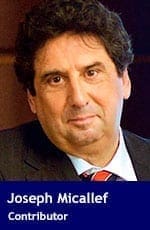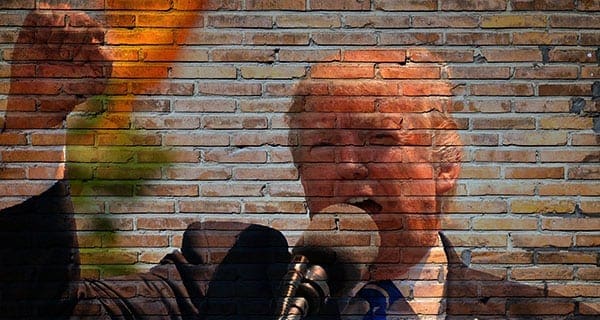 Politics is about theatre. Policy is about substance. Two centuries after the expansion of suffrage, that truism about democratic politics remains valid.
Politics is about theatre. Policy is about substance. Two centuries after the expansion of suffrage, that truism about democratic politics remains valid.
That doesn’t mean political rhetoric doesn’t matter. Many politicians have discovered that broken promises boomeranging back on you. How politicians communicate – among themselves, with the media and the rest of us – definitely has a bearing on the tone and nature of national discourse.
But focusing on what politicians do is usually more instructive than focusing on what they say or how they say it.
Donald Trump has been in the White House for little more than a week – not a lot of time in which to establish a track record to analyze. During the election, he positioned himself as a populist. It’s no surprise that in government he continues to sound like a populist. In politics, if something works you stick to it until it stops working.
One week in, the national media has been merciless in its criticisms of the Trump administration. Critics have been quick to focus on the nature and tone of White House communications: from the silly argument over number of people who attended the inauguration (in person or via broadcast and the Internet), to how prevalent fraudulent voting in the election was, to the rapid issuance of presidential directives designed to implement the America-first initiatives that Trump outlined during the campaign. His cabinet nominations have been lambasted as a collection of plutocrats whose myriad conflicts of interests will make it impossible for them to govern – especially when added to the president’s own alleged conflicts.
There’s a persistent tone of condescension in many national media reports on the Trump administration. That’s not surprising. Elites tend to look down on those they judge as non-elites; the great unwashed, the rubes, the denizens of flyover country, the governmental amateurs who can’t possibly grasp the complexity, sophistication or nuance of formulating and implementing national policies. Sort of what the Whigs used to say about Andrew Jackson.
The “amateurishness” of the incoming Trump administration was gleefully pointed out by the media when then president-elect Trump took a congratulatory phone call from Taiwanese President Tsai Ing-wen. Didn’t the policy rubes realize that a president-elect could not speak to his Taiwanese counterpart? That doing so was a reversal of four decades of the “one China” policy and that it would offend Beijing? Can you roll your eyes? Surely Hillary Clinton’s people would not have made such a blatant error.
As the story unfolded, however, it quickly became apparent that the phone call was not an inadvertent lapse of judgment. It was a carefully orchestrated event in planning for months. Bob Dole, the leader of the Senate Republicans from 1985 to 1995, the Republican Party’s presidential nominee in 1996 and an occasional adviser to the Taiwanese government, played a critical role in proposing and then orchestrating the call.
Moreover, several Trump advisers, notably Peter Navarro and White House Chief of Staff Reince Priebus, have long-standing ties with the Taiwanese government. The planning for the call began in midsummer, long before the election was held or the winner determined. What was first dismissed as an amateurish error was quickly recast as a deliberate and unmistakable signal to Beijing that Washington intends to change its relationship with China.
Since then, even more interesting tidbits have emerged. Although the evidence is largely circumstantial, it points to a far greater degree of nuance and subtlety than the Trump administration is typically given credit for by the national media. On Nov. 17, Japanese Prime Minister Shinzo Abe met with the president-elect. He was the first foreign leader to meet with Trump. Interestingly, Henry Kissinger also met with Trump that day, at roughly the same time. Two weeks later, Kissinger was in Beijing meeting with Chinese Prime Minister Xi Jinping. The call from Tsai was placed at 11 p.m. local time, after Kissinger’s meeting with Xi.
Kissinger has been an informal adviser to the last three administrations, often serving as an unofficial conduit to foreign governments. Trump’s deputy national security adviser, K.T. McFarland, was a member of Kissinger’s national security staff in the Nixon administration. She is one of the few Kissinger-era staffers still active in government.
Perhaps the timing of Kissinger’s meeting and the call from Tsai was all coincidence. It’s hard to believe, however, that Kissinger wouldn’t have mentioned to Trump or his staff that he would be meeting with the Chinese prime minister in two weeks, or that Trump’s staff would have blindsided an important adviser.
What’s more plausible is that Abe and Kissinger were advised of the impending call and that Kissinger, at the behest of Trump, told Xi that the call was coming. Following his return from Beijing, Kissinger had a second meeting with Trump; this one coincided with a visit to Trump Tower by secretary of state-designate Rex Tillerson. Another amazing coincidence? This would have been an awkward meeting for Kissinger had he just been embarrassed in front of Xi by the incoming administration.
Trump brings a unique, populist style to the White House. It worked during the campaign and he, no doubt, sees little reason to change it now. Besides, it’s who he is. The notion of the American presidency as an exercise in personal branding feels like a trivialization of the political process, a reduction of the idea of the president as the most powerful man in the world to little more than a ratings-obsessed TV personality.
But that’s exactly what American politics has become, a contest waged with 30-second sound bites, carefully orchestrated media photo ops by candidates moulded and shaped by a never-ending panel of focus groups. American politics is now a carefully constructed reality TV show.
Nonetheless, there’s more to the Trump presidency than it’s given credit for. There’s far more subtlety, nuance and forethought to its policies, and the public pronouncements that accompany them, than the national media reports.
One week hardly makes for a track record, but it would behoove this administration’s critics to dig beyond the soundbites and the tweets to determine where this administration is really going.
Joseph Micallef is an historian, best-selling author and, at times, sardonic commentator on world politics.
Joseph is a Troy Media contributor. Why aren’t you?
The views, opinions and positions expressed by columnists and contributors are the author’s alone. They do not inherently or expressly reflect the views, opinions and/or positions of our publication.


